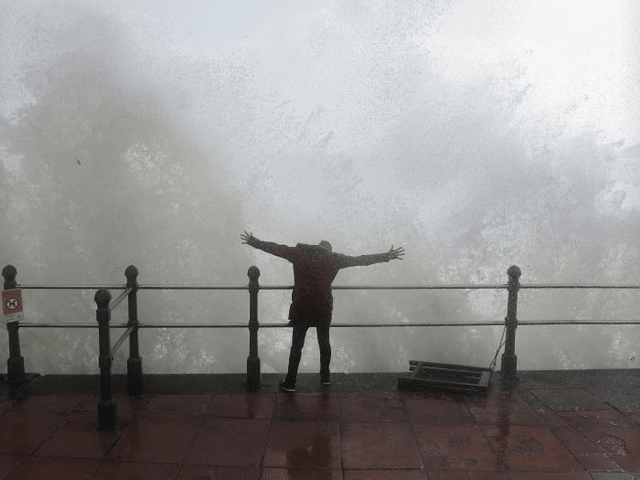The world’s top credit rating agency has warned U.S. state and municipal governments that they must make climate change preparations or suffer credit downgrades and pay higher interest rates to borrow.
Moody’s Investor Services issued a report, Environmental Risks — Evaluating the Impact of Climate Change on US State and Local Issuers, to announce: “The growing effects of climate change, including climbing global temperatures, and rising sea levels, are forecast to have an increasing economic impact on US state and local issuers. This will be a growing negative credit factor for issuers without sufficient adaptation and mitigation strategies.”
Credit analysts will start including the risks of climate change that cannot be mitigated by future issuer actions to its evaluation of credit default risk. In developing new credit ratings, Moody’s will differentiate between climate trends, defined as longer-term climate shifts that can take several decades, versus extreme weather climate shocks such as natural disasters, floods, and droughts that can be “exacerbated by climate trends.”
Moody’s warns that that climate shocks can have sharp, immediate and observable impacts on an issuer’s infrastructure, economy and revenue base, and environment. The firm sees such events as impacting an issuer’s economy, fiscal position, and capital infrastructure, limiting management’s ability to marshal resources to drive recovery.
Credit analysts view recent climate shocks that include coastal storm damage, more frequent droughts, and severe heat waves as indicative of growing loss of life, infrastructure damage, crop failures, and rapidly escalating recovery costs.
Moody’s Vice President Michael Wertz wrote that states and municipalities neglecting to adopt mitigation strategies in anticipation of climate shock risks, could become an “ongoing credit challenge.” He added Moody’s analysis of economic strength and diversity, access to liquidity, and levers to raise additional revenue would continue to be key to the assessment of climate shock risks.
Moody’s used Hurricane Katrina as an example of a climate shock that struck the City of New Orleans in 2005. In addition to widespread personal and infrastructure losses, city revenues fell dramatically due to a large percentage of its city’s population moving away permanently.
Moody’s suggests that despite the U.S. Federal Emergency Management Agency (FEMA) paying for disaster relief and economic recovery, federal government aid should play an important role in funding state and local government mitigation costs.
The new analysis follows Moody’s $864 million settlement with the U.S. Justice Department, 21 states and the District of Columbia in January 2017 over allegations it contributed to the 2008 financial crisis due to its overly-positive ratings of risky mortgage securities.
Justice Department Deputy Associate Attorney General Bill Baer issued a statement at the time, “Moody’s failed to adhere to its own credit-rating standards and fell short on its pledge of transparency in the run-up to the Great Recession.”

COMMENTS
Please let us know if you're having issues with commenting.